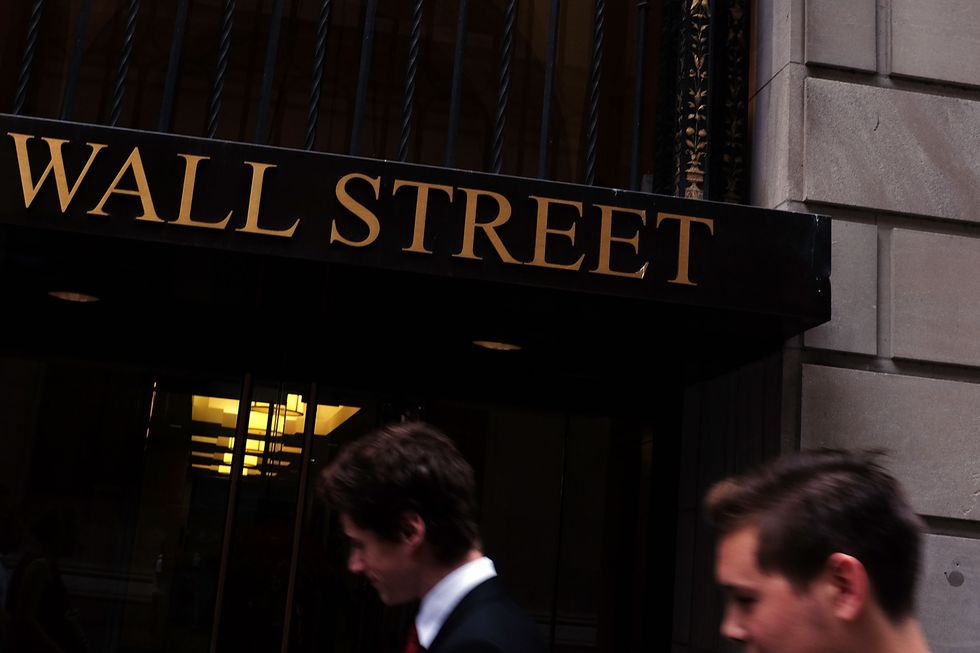
People walk along Wall Street in the financial district, July 9, 2015. (Getty Images/Spencer Platt)

WASHINGTON (TheBlaze/AP) -- The U.S. economy's growth slowed sharply in the final three months of 2015 to a 0.7 percent annual rate. Consumers reduced spending, businesses cut back on investment and global problems trimmed exports.
The slowdown could renew doubts about the durability of the six-and-a-half-year economic expansion.
The government's estimate Friday of the economy's expansion in the October-December period was less than half the 2 percent annual growth rate of the previous quarter and the weakest showing since a severe winter reduced growth to a 0.6 percent annual rate in last year's first quarter.

Activity is expected to rebound in the current January-March period, though economists worry that China's troubles and sinking oil and stock prices could dampen the recovery.
A boost this year is expected to come mainly from consumer spending, which typically fuels about two-thirds of economic activity. Continued solid job growth could embolden consumers to spend more.
The Federal Reserve issued a cautious assessment of the economy this week. The Fed left interest rates unchanged after having raised its benchmark short-term rate in December from record lows. Many analysts think that economic weakness, subpar inflation and global pressures will cause the Fed to slow its pace of rate hikes this year from what had been expected to be four increases to perhaps only two.
For all of 2015, economists have estimated that the economy grew around 2.3 percent, about equal to the 2.4 percent growth for 2014. That would continue the economy's pattern of subpar growth since the Great Recession officially ended in June 2009.
For 2016, economists are forecasting another year of modest growth of around 2 percent. At the same time they have nudged up the prospects for a recession this year. While still low, the likelihood is now put at around 20 percent, though most analysts still see an outright recession as unlikely.
Many economists expect the strength in the domestic economy to offset weakness in export sales and in the U.S. energy sector, which has been slashing investment in response to the plunge in energy prices.
While economic growth was lackluster last year, hiring was not. The economy added an average of 284,000 jobs a month in the final quarter of last year. The unemployment rate ended the year at a low 5 percent.
Mark Zandi, chief economist at Moody's Analytics, said he expects strong job growth to keep lowering unemployment and to help boost wages, which have lagged in this recovery. He said the extra consumer spending, which will be aided by lower gas prices, will likely support economic growth of around 2.5 percent in 2016.
Growth at that level is above the economy's potential right now, which many analysts put at around 2 percent, reflecting a slower pace of people entering the job market and slower productivity growth.